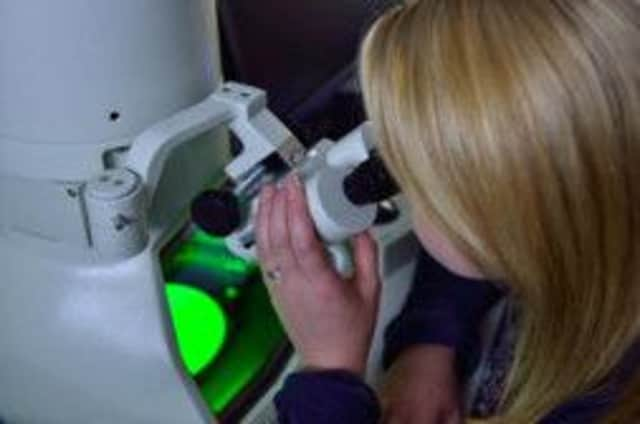Human organs made in labs a possibility


Scottish scientists have produced a working thymus, a vital immune system “nerve centre” located near the heart. In future the technique, so far only tested on mice, could be used to provide replacement organs for people with weakened immune systems, scientists believe.
The research by-passed the usual step of generating “blank slate” stem cells from which chosen cell types are derived. Instead, connective tissue cells from a mouse embryo were converted directly into a completely different cell strain by flipping a genetic “switch” in their DNA.
Advertisement
Hide AdAdvertisement
Hide AdThe resulting thymic epithelial cells (TECs) were mixed with other thymus cell types and transplanted into mice where they spontaneously organised themselves and grew into a whole structured organ.
Professor Clare Blackburn, from the Medical Research Council Centre for Regenerative Medicine at the University of Edinburgh, who led the team of scientists, said: “The ability to grow replacement organs from cells in the lab is one of the holy grails in regenerative medicine. But the size and complexity of lab-grown organs has so far been limited.
“By directly reprogramming cells we’ve managed to produce an artificial cell type that, when transplanted, can form a fully organised and functional organ. This is an important first step towards the goal of generating a clinically useful artificial thymus in the lab.”
If the immune system can be compared with an army, the thymus acts as its operations base. Here, T-cells made in the bone marrow are primed to attack foreign invaders.
Once deployed by the thymus, the T-cells protect the body by scanning for infectious invaders such as bacteria and viruses, or dangerous malfunctioning cells, for instance from tumours.
When an “enemy” is detected, the T-cells mount a co-ordinated immune response that aims to eliminate it. The new research, published in the journal Nature Cell Biology, raises the possibility of creating a whole new functioning thymus using cells manufactured in the laboratory.
While fragments of organs, including hearts, livers and even brains, have been grown from stem cells, no one before has succeeded in producing a fully intact organ from cells created outside the body.
Dr Rob Buckle, head of regenerative medicine at the MRC, said the discovery was an “exciting” early step towards growing “replacement parts” for damaged tissue.
Advertisement
Hide AdAdvertisement
Hide AdDr Paolo de Coppi, consultant paediatric surgeon at Great Ormond Street Hospital and head of Stem Cells and Regenerative Medicine at the Institute of Child Health, London, said: “Research such as this demonstrates that organ engineering could, in the future, be a substitute for transplantation, overcoming problems such as organ donor shortages and by-passing the need for immunosuppressive therapy.”